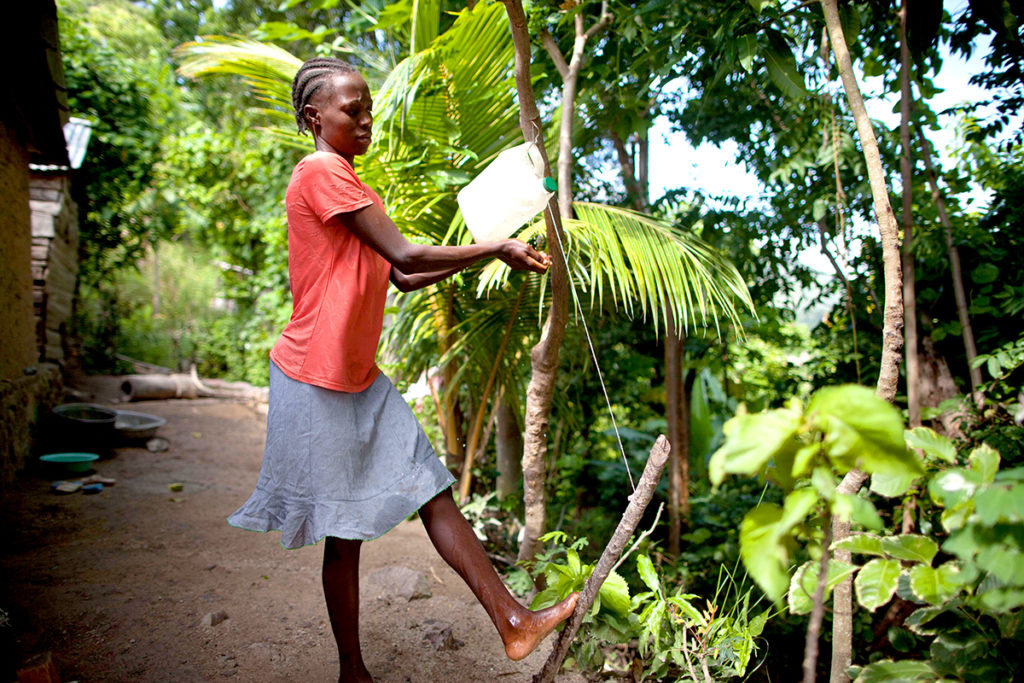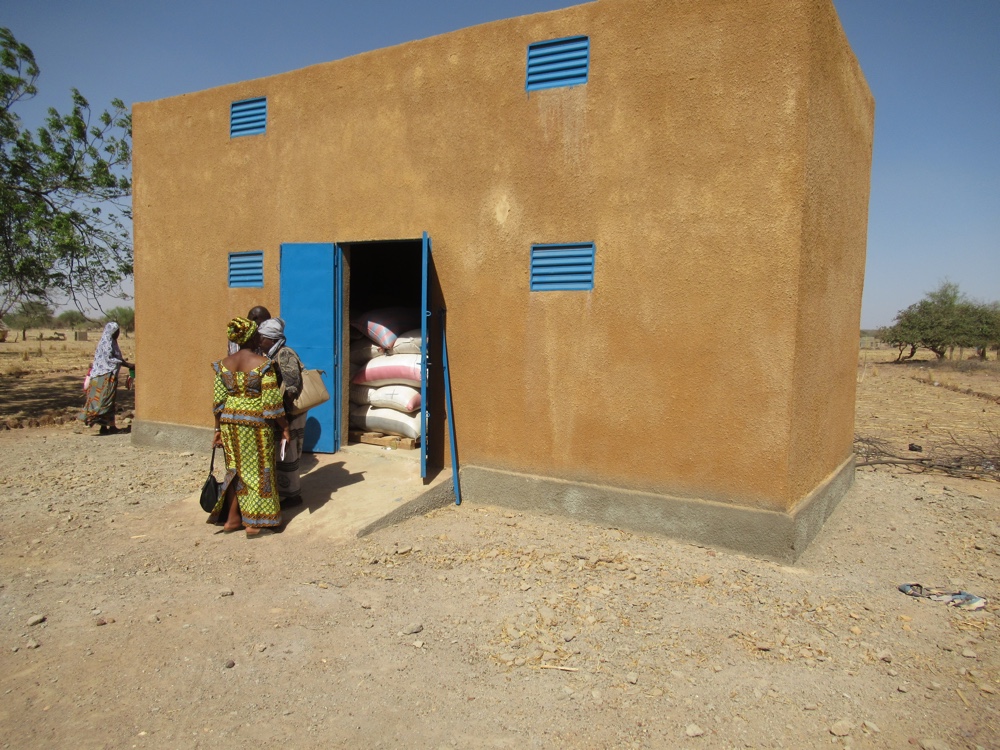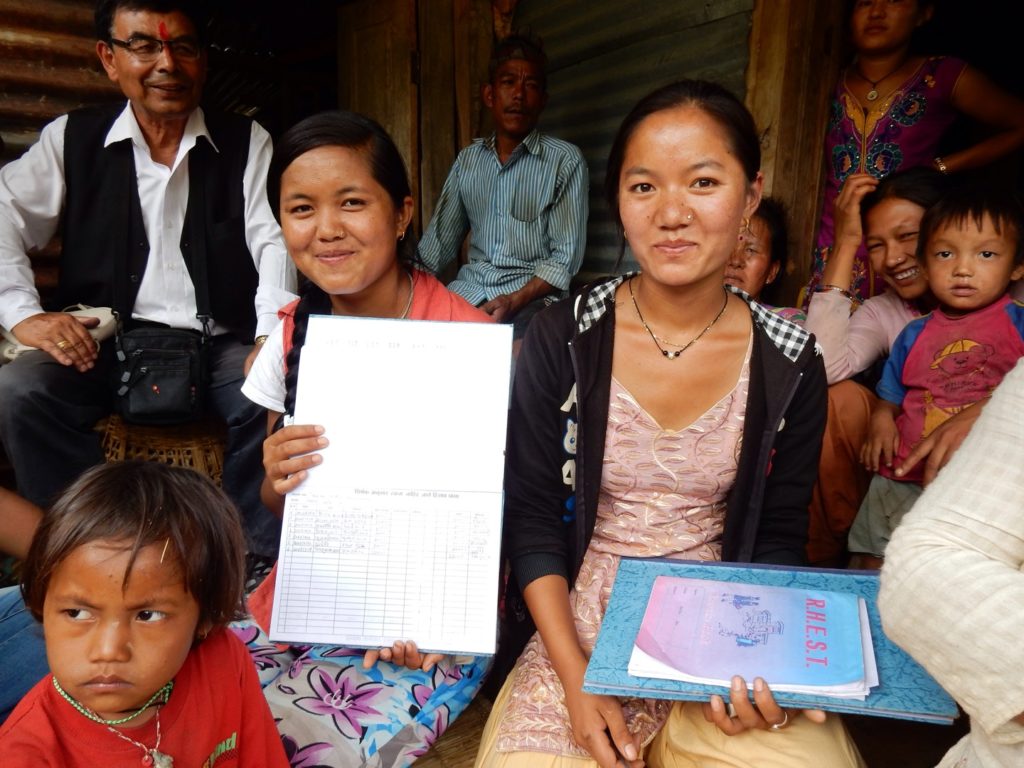Groundswell’s COVID-19 Response: People-Centered Solutions for Community Health, Food Security and Resilience

COVID-19 is spreading to developing countries, where high levels of poverty, inequality and inadequate healthcare infrastructure make controlling the virus even more challenging than it is in developed nations. Almost three billion people across the developing world do not have access to clean water, and hundreds of millions do not have access to adequate healthcare and live in crowded conditions where social distancing is all but impossible. Without urgent action, the COVID-19 pandemic will kill hundreds of thousands of people and set millions more on a downward spiral of ill health and poverty that will undermine the hard-fought development gains we have made in recent years.
Since 2009, Groundswell International has worked with people in some of the world’s poorest and most marginalized places to catalyze the transition from unsustainable conventional agriculture to ecologically-sound farming and food systems, strengthen resilience, and restore local economies. Our network of local partner NGOs and communities in West Africa, the Americas and South Asia reaches more than 500,000 people, using a “learning by doing” approach that empowers them to analyze their situation, identify existing problems, examine the various alternatives to overcome these challenges, and then choose, plan, and implement the best solutions. Such a localized, empowering, and easily replicable approach is critical to limiting the COVID-19 pandemic in places far from population centers where the vast majority of resources will be focused.
While Groundswell remains committed to our core mission of supporting rural communities to increase their agroecological food production, we are also responding to requests to meet the unique challenges posed by COVID-19. Groundswell is mobilizing local knowledge, creativity, and initiative rather than externally based knowledge and technology. After consulting with local partners and communities, Groundswell is prioritizing actions to address immediate health needs and medium-term food security and livelihoods concerns:

- Rapid needs assessment: In coordination with community leaders and local governments, Groundswell’s NGO partners in all 10 countries are undertaking rapid needs assessments to inform response plans.
- Information campaigns: Initial reports indicate that most communities are aware of the COVID-19 pandemic. However, it is also apparent that many people continue to receive incomplete and/or inaccurate information. Groundswell is supporting local partners to develop information campaigns to reinforce behaviors, such as social distancing, hand washing and disinfecting high traffic areas, that can slow the spread of the virus.
- Hygiene: During the first phase of the response, we are investing the bulk of our resources in essential water, sanitation and hygiene (WASH) infrastructure and supplies to ensure that households have the means to wash their hands and disinfect high touch surfaces. For example, we anticipate working with communities to distribute soap and antiviral cleaning solutions, as well as setting up hand washing stations in public areas, such as “tippy taps”, which are a low-cost solution for hands-free washing that is especially appropriate for rural areas where there is no running water.
- Mobilizing community health workers: Where public health workers are not present, we are mobilizing community health promoters to support their communities during the COVID-19 pandemic. Health promoters are key to reinforcing messaging about the ways the virus spreads and ways people can limit its transmission, as well as to supporting public health authorities to identify and isolate potential COVID-19 cases.
- Personal protection equipment (PPE): PPE is in short supply worldwide. This is unlikely to change anytime soon. While manufactured products would be ideal because they provide the best protection, in their absence, Groundswell is supporting local people to produce face masks, gowns and other forms of improvised PPE that provide some level of protection to healthcare workers and those caring for loved ones who have fallen ill with COVID-19.

- Food production and rural livelihoods: After immediate health needs are being met, Groundswell will focus on the activities that contribute to the agroecological and rural livelihoods activities that have been at the core of our work for the past 10 years. In the context of this emergency, we anticipate providing emergency capital to existing savings and credit groups to cover the anticipated increase in household expenses that result from illness to economically active adults and the loss of livelihoods. Additionally, Groundswell will recapitalize farm households that have been forced to sell their livestock, which are a critical form of savings and a key livelihood and food security asset. We will also work with communities to establish grain banks and seed banks, and, where they already exist, we will capitalize them to meet the anticipated increase in demand among farmers. Capitalization of these core community resources will help limit the economic impact of the crisis.
- Market access: Finally, because many farmers are finding it difficult to access local markets because of lockdowns, Groundswell and its partners will develop innovative ways of commercializing local products to ensure that farmers can earn at least some income during the crisis.
As these people-centered solutions take hold, we will employ methodologies and technologies in ways that facilitate multiplication (i.e., spontaneous spread) of efforts to reach the maximum number of people in the shortest possible time. Time is of the essence. We must act now to enable developing countries to limit the spread of the virus, improve health systems to care for those affected, and safeguard livelihoods to bolster food security and allow people to recover once the pandemic abates. Please join us.
